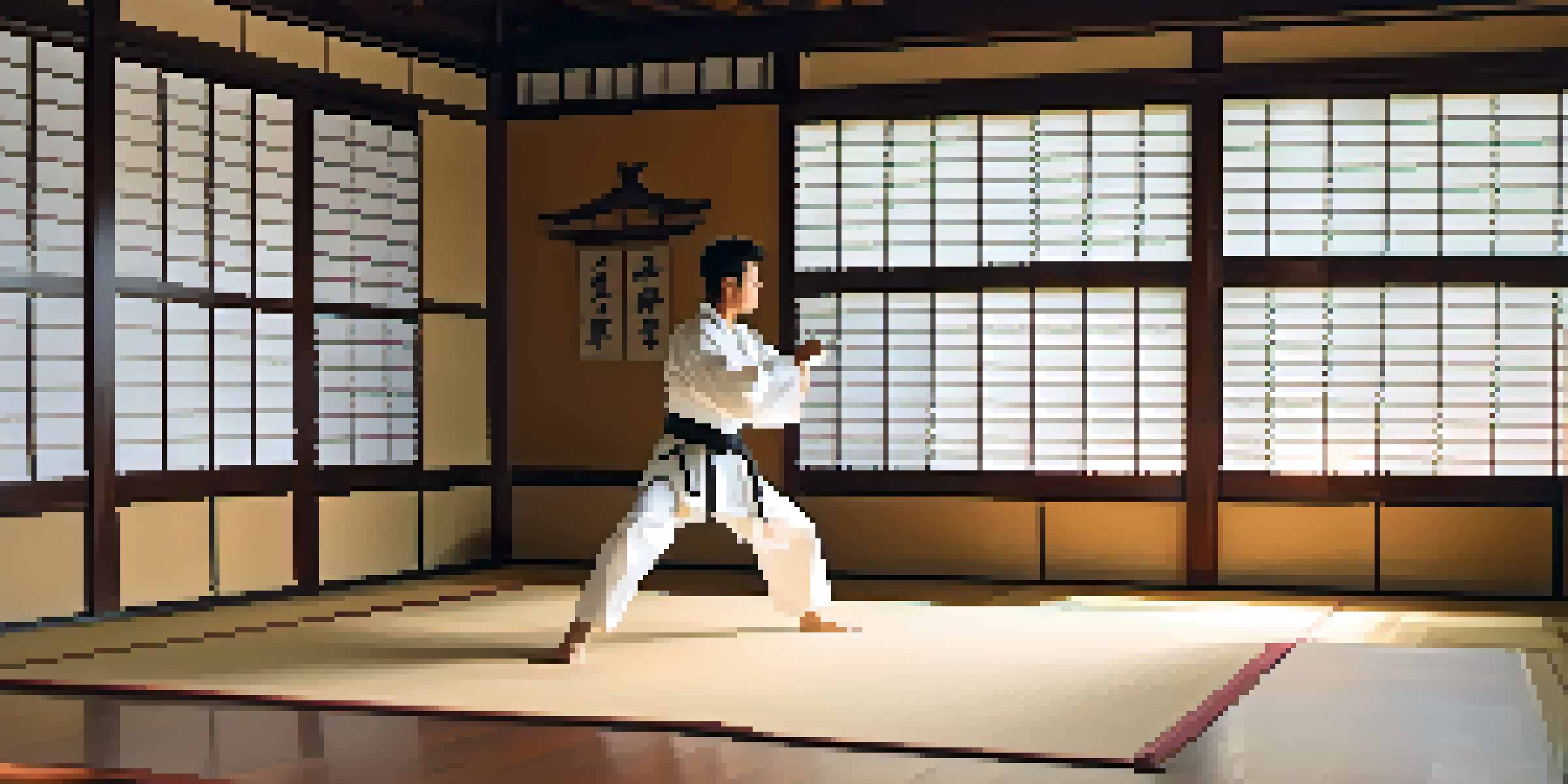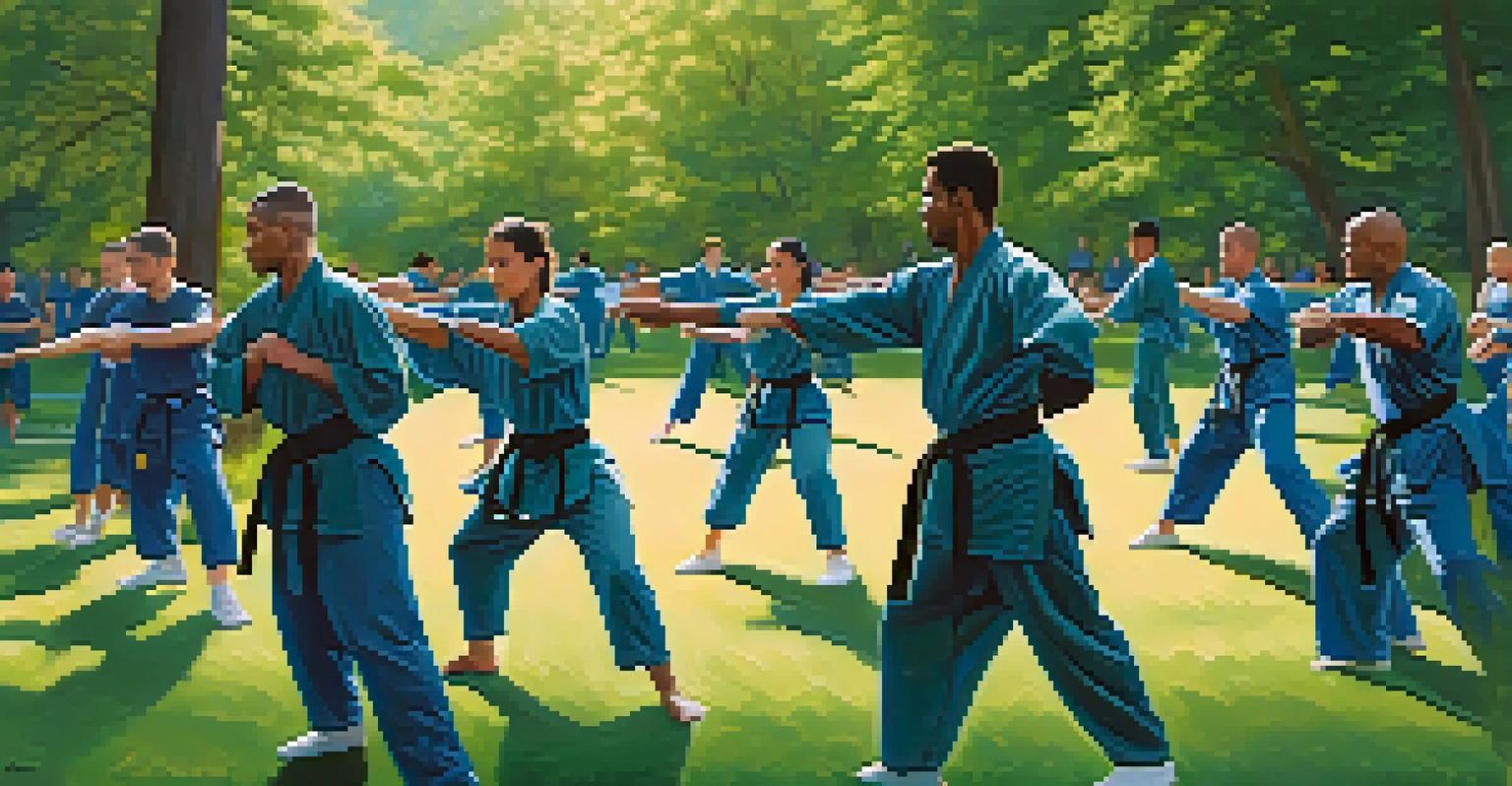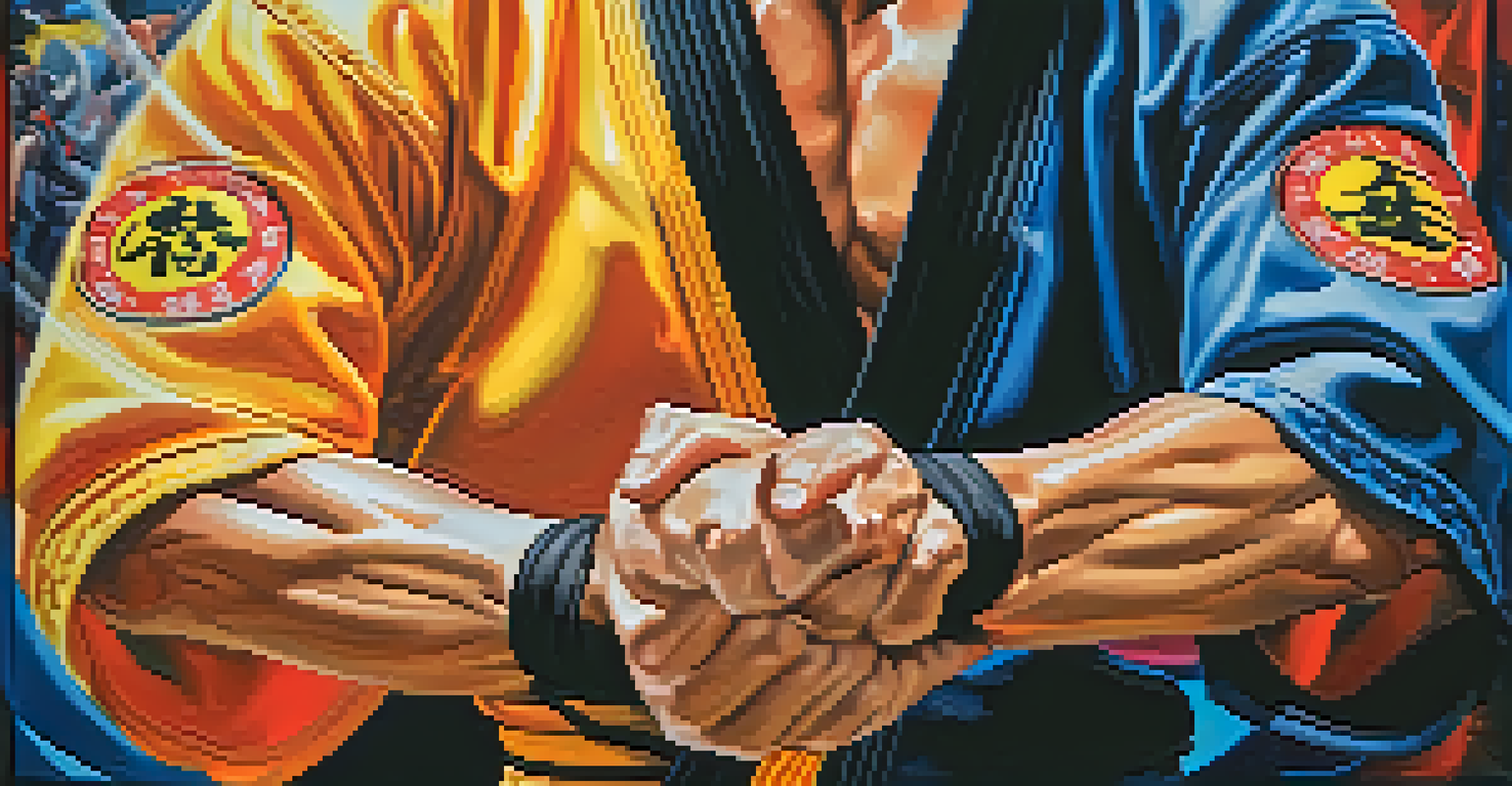Understanding Legal Implications of Self-Defense in Martial Arts

What is Self-Defense in Martial Arts Context?
Self-defense in martial arts refers to techniques and tactics used to protect oneself from an imminent threat or physical harm. It encompasses various disciplines, such as karate, judo, and Brazilian jiu-jitsu, each offering unique strategies for defense. The core principle is to respond appropriately to an attack without escalating the situation unnecessarily.
The best defense is a good offense.
In many martial arts classes, students learn not just how to fight but also when to fight. Understanding the distinction between self-defense and aggression is crucial, as the latter can lead to legal consequences. This distinction is often highlighted in training sessions, where practitioners are taught to use their skills responsibly.
Ultimately, martial arts aim to empower individuals, but with that power comes responsibility. Knowing when and how to apply self-defense techniques can protect not only your safety but also your legal standing in potentially dangerous situations.
Legal Definitions of Self-Defense
The legal definition of self-defense varies by jurisdiction, but it generally includes the right to use reasonable force to protect oneself from harm. Most laws stipulate that the threat must be imminent, and the response must be proportionate to that threat. For instance, if someone pushes you, responding with lethal force could be deemed excessive.

It's essential to understand that self-defense laws are designed to prevent individuals from taking the law into their own hands. This means that even trained martial artists must ensure that their actions are justified and not preemptive. Each situation is unique, and the context matters significantly in legal terms.
Understanding Self-Defense Basics
Self-defense in martial arts involves using techniques responsibly to protect oneself from harm while recognizing the legal implications of those actions.
Being aware of these definitions not only fosters a sense of responsibility but also prepares martial artists for real-world encounters. Knowing what constitutes self-defense in the eyes of the law can help practitioners make informed decisions in critical moments.
Duty to Retreat: What It Means
In some jurisdictions, individuals have a 'duty to retreat' before using force against an attacker. This means that if it is safe to escape a threatening situation, the person should do so instead of resorting to violence. The concept emphasizes de-escalation and prioritizes preserving life over reaction.
Self-defense is not just a matter of physical force; it is about the control of one's mind and emotions in the face of danger.
However, not all states enforce this duty. Some places have 'stand your ground' laws, allowing individuals to use force without retreating first if they feel threatened. Understanding these differing laws is critical for martial artists, as ignorance can lead to serious legal repercussions.
Ultimately, knowing whether you have a duty to retreat can change how you approach self-defense training. It encourages practitioners to think critically about their responses and the potential outcomes of their actions.
Proportionality in Self-Defense Actions
Proportionality refers to the idea that the force used in self-defense should match the level of threat faced. If someone is merely threatening you verbally, responding with physical force might not be legally justified. This principle is crucial for martial artists to grasp, as it can differentiate between legal self-defense and assault.
Martial arts training often emphasizes the importance of assessing a situation before reacting. Practitioners are encouraged to develop situational awareness and to evaluate the possible consequences of their actions. This kind of foresight can be invaluable in preventing unnecessary legal issues.
Legal Awareness is Crucial
Martial artists must understand local self-defense laws, including concepts like proportionality and duty to retreat, to avoid serious legal consequences.
By focusing on proportionality, martial artists can not only enhance their defensive skills but also cultivate a mindset of responsibility and restraint. This balance is key to navigating the complexities of self-defense laws.
Common Legal Consequences of Misused Self-Defense
Misunderstanding or misapplying self-defense can lead to serious legal consequences, including criminal charges, civil lawsuits, or even imprisonment. For instance, if a martial artist uses excessive force, they could be charged with assault rather than being exonerated for self-defense. This stark reality highlights the importance of legal knowledge for practitioners.
Additionally, the burden of proof often falls on the individual claiming self-defense. They must demonstrate that their actions were justified, which can be a challenging task in court. This is where having a clear understanding of the law and proper training can make all the difference.
Thus, martial artists should approach their training with an awareness of potential legal outcomes. It’s not just about mastering techniques; it’s also about being prepared for the legal implications of those techniques in real-life scenarios.
The Role of Training in Legal Preparedness
Training in martial arts goes beyond physical conditioning; it encompasses mental preparedness and legal awareness. Many dojos and training centers incorporate discussions on self-defense laws as part of their curriculum. This holistic approach ensures that students are not only physically adept but also legally savvy.
Moreover, practicing scenarios that emphasize legal considerations can be invaluable. Role-playing different situations helps practitioners understand the implications of their actions and reinforces the importance of proportionality and retreat. This type of training cultivates a well-rounded martial artist.
Training Includes Legal Preparedness
Comprehensive martial arts training should encompass legal education and scenario practice to ensure practitioners are both physically skilled and legally informed.
In essence, comprehensive training fosters a sense of responsibility. By understanding the legal landscape, martial artists can confidently navigate real-world situations while minimizing legal risks.
Seeking Legal Counsel for Self-Defense Situations
It's wise for martial artists to seek legal counsel when faced with self-defense situations. An attorney who specializes in self-defense law can provide crucial guidance and help build a strong defense if needed. They can also clarify the nuances of local laws, ensuring that practitioners are well-informed.
Additionally, having legal representation can be beneficial post-incident. If a martial artist is involved in a confrontation, an attorney can help navigate the complexities of the legal system. This professional support can make a significant difference in the outcome of a case.

Therefore, investing in legal knowledge and support is as important as physical training. By aligning martial arts skills with legal guidance, practitioners can be better prepared to protect themselves, both physically and legally.